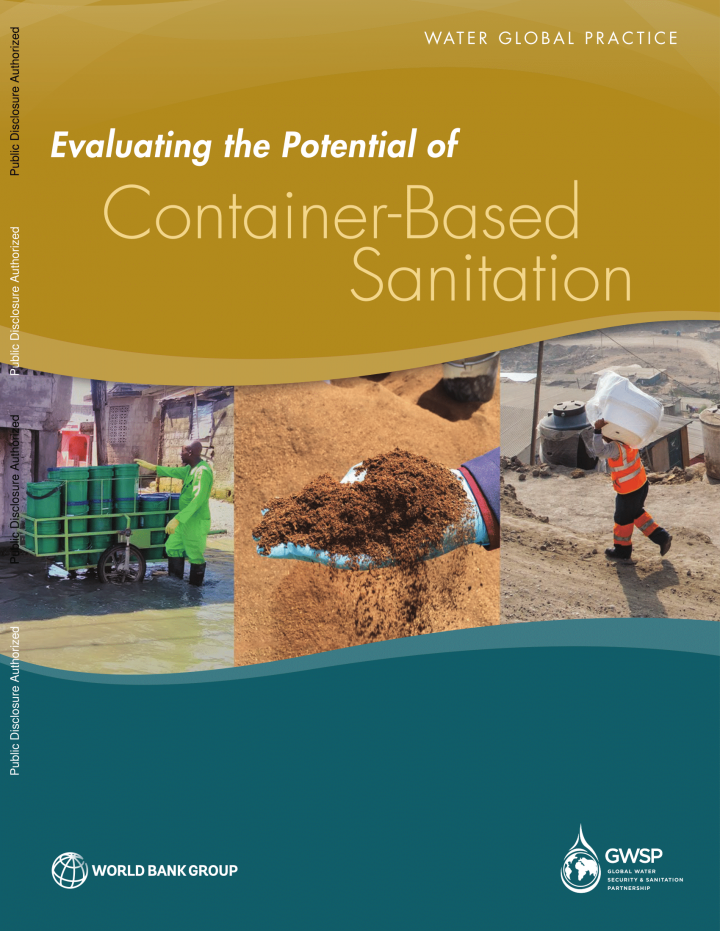Evaluating the Potential of Container-Based Sanitation World Bank (2019)
Urban population growth in many developing countries outpaces gains in improved sanitation access and services. In such circumstances, the traditional approach to urban sanitation, premised on extending sewerage networks and building wastewater treatment (WWT) plants, will not be sufficient to deliver citywide sanitation services for all. Alternative approaches are needed to deliver adequate and inclusive sanitation services across the full sanitation service chain.
Informal urban settings pose particular challenges in the rollout of sanitation services, such as difficult access; lack of land tenure or space to build a sanitation solution; often challenging physical and topographical conditions, such as rocky soil, proximity to water bodies, and high-water tables; lack of water supply; and/or regular exposure to flooding. Approaches are needed to meet these challenges so that the population living in informal settings, who is often among the most vulnerable, can benefit from adequate sanitation services.
In the past 10 years, container-based sanitation (CBS) approaches have emerged as an alternative service
approach for the urban poor to those provided by sewers or by on-site sanitation (OSS) systems.
CBS approaches provide a sanitation response in situations facing some or all of the challenges mentioned above, as well as in emergency situations and in refugee camps, where they can be deployed rapidly without the need for building permanent infrastructure. Although this kind of approach remains relatively new and has not yet been applied at significant scale, it warrants more investigation regarding its potential place in a portfolio of solutions for a citywide inclusive sanitation (CWIS) approach.
The study builds on four case studies (Sanergy, Nairobi, Kenya; Sustainable Organic Integrated Livelihoods [SOIL], Cap-Haitien, Haiti; Clean Team, Kumasi, Ghana; and x-runner, Lima, Peru) to provide insights into these questions. The present document is one of these four case studies. The full suite of documents is available at www.worldbank.org/cbs.
External Website(s)
Worldbank website: Evaluating the Potential of Container-Based Sanitation
Bibliographic information
World Bank (2019). Evaluating the Potential of Container-Based Sanitation World Bank, Washington, DC., United States
Filter / Tags
Container based systems (CBS)Urban informal settlements (slums)English
External links
Worldbank website: Evaluating the Potential of Container-Based Sanitation

